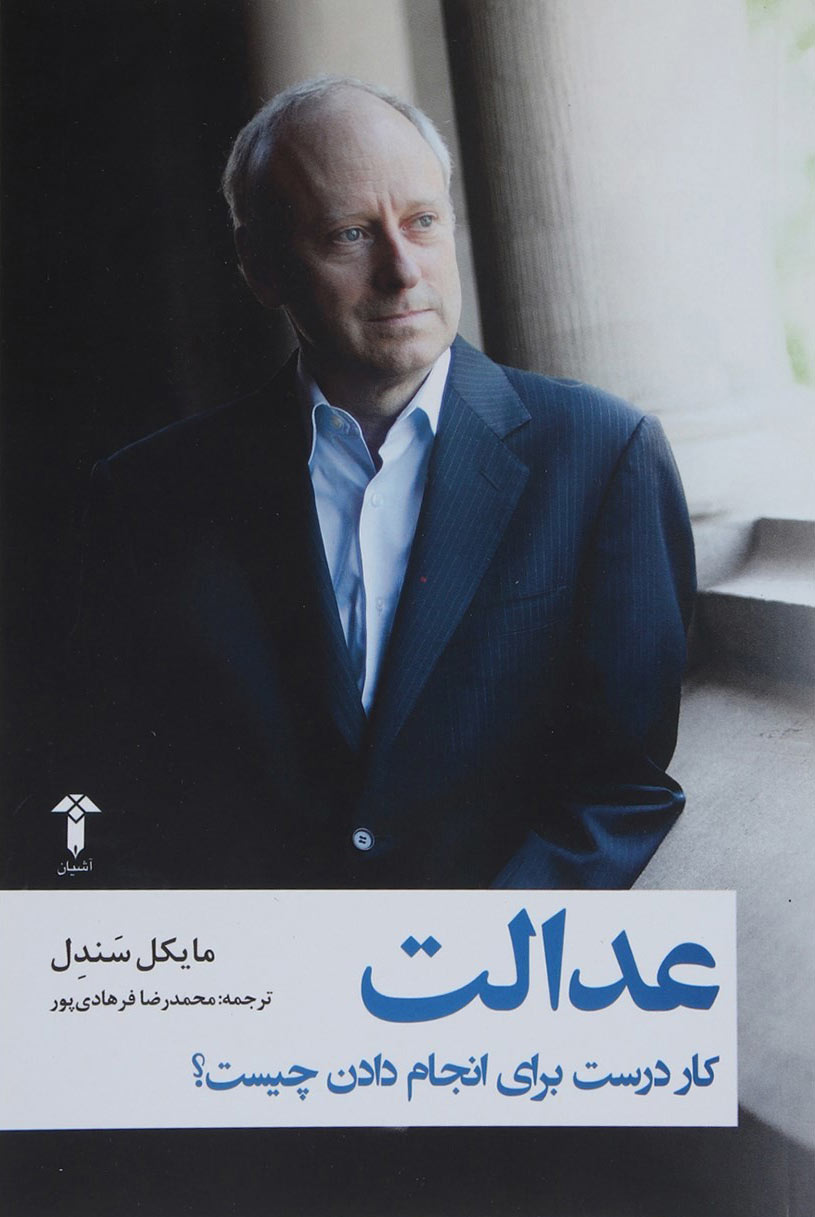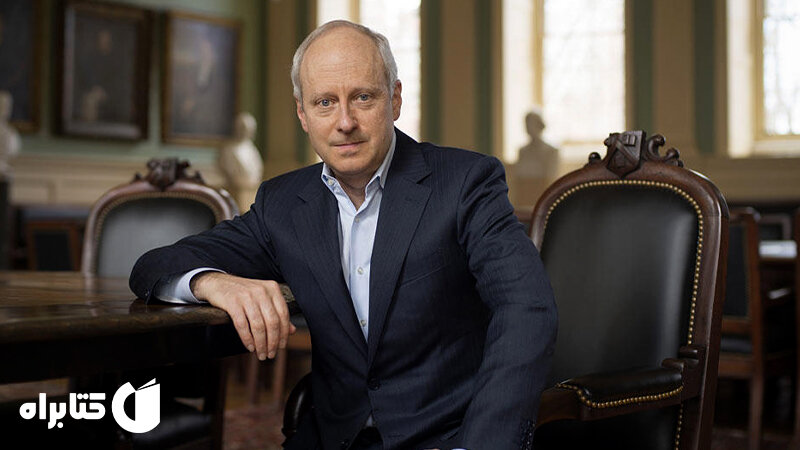Forozan Asif Nakhai: According to the news agency Online news“The Book of Justice: What is the right thing to do?” By Michael J. Michael J. Sandel and translated by Mohammad Reza Farhadipour propose three general interpretations of justice: 1- Justice means the production of maximum profit or welfare, which can be introduced through the opinions of utilitarians such as Jeremy Bentham and John Stuart Mill. 2- Justice is achieved while respecting the freedom of choice: which will either be in the form of real choice in a free market (like the views of free-thinkers such as Robert Nozick) or in the form of a hypothetical choice in an equal position and according to the views of liberal egalitarians such as John Rawls. 3-Justice that requires the cultivation of virtue and reasoning about the collective good. By choosing the third interpretation, Sandel believes that in order to achieve a just society, we must reason about the meaning of a good life and create a culture that accepts the differences of opinion that inevitably arise. Critics believe that in this book, Sandel explores complex moral dilemmas through philosophical frameworks in which he makes use of real-world examples to make abstract concepts accessible. In this book, the reader will find that the book has a high ability to stimulate critical thinking about ethics and justice. Sandel’s work in this department is commendable. The structure of the book, which moves from utilitarianism to virtue ethics, provides a comprehensive overview of major ethical theories. Of course, in the end, it should not be forgotten that Sandel’s views are based on common development theories and solutions to the problems caused by the capitalist system.
1. Justice requires examining moral dilemmas and their consequences
In the book, Sandel presents a problem as a trolley. And it raises and follows the trolley problem as an important scenario in the book. The trolley scenario shows the complexity and ethical decision making. The problem with the trolley in the book is that in exceptional circumstances should you divert the trolley to kill one person instead of five? This thought experiment reveals the tension between utilitarian thinking (maximizing overall welfare) and respect for individual rights.
Real-world applications are discussed in this book, and similar ethical dilemmas arise in contemporary issues:
A- Increase in prices during natural disasters
b- Criteria for awarding military honors
C- Executive bonuses during financial crises
These situations force us to confront difficult questions about justice, responsibility, and the conflicting claims of individuals and society. By examining such dilemmas, we can better understand the principles that should guide our moral and political choices.
2. Utilitarianism: Maximizing happiness for the greatest number
Bentham believed that the principle of utility provides a science of ethics that can be the basis of political reforms.
Based on Bentham’s principle, utilitarianism developed by Jeremy Bentham suggests that The highest moral good is the maximization of total happiness and the minimization of suffering. This approach provides a seemingly objective way to make ethical decisions by calculating costs and benefits.
But based on this principle, there are criticisms and limitations as follows:
A- Ignoring individual rights
b- Reduce all values to a single scale
C- It may justify the suppression of minorities for the benefit of the majority
While utilitarianism provides a clear framework for decision-making, it struggles to capture the full complexity of moral life and respect for human dignity. John Stuart Mill attempted to refine utilitarianism by distinguishing between higher and lower pleasures, but ended up facing similar challenges in the area of individual rights.
3. Libertarianism: Individual rights and self-ownership
If I own myself, I must also own my work. (If someone else could give me orders, that person would be my master and I would be a slave.)
Libertarianism emphasizes the principle of ownership. Libertarianism asserts that individuals have absolute rights over their bodies, labor, and acquired property. This view leads to a minimal government that only protects against force, theft, and fraud.
The consequences of libertarianism are as follows:
A: Opposition to redistributive taxation
B: Rejection of patriarchal rules
A: Support free markets and voluntary exchanges
While libertarianism offers a strong defense of individual liberty, it faces challenges in the following areas:
A: In the field of collective goods and externalities
B: In the field of inequality of opportunities
A: In the context of social obligations beyond satisfaction
Libertarianism’s emphasis on self-ownership makes a compelling argument against some forms of government coercion, but it has trouble explaining our intuitions about social responsibility and justice.
4. Markets and Ethics: The Limits of Economic Reasoning
For Kant, justice requires upholding the human rights of all people, regardless of where they live or how well we know them, simply because they are human beings capable of reason and therefore worthy of respect.
Sandel has a lot of concerns about the influence of the market in people’s lives. Because economic reasoning and market mechanisms have extended to traditional non-market domains and raised ethical concerns. These concerns can be examined in the following three areas:
A: Military service and private contractors
B: Surrogacy and reproductive rights
A: Selling body parts and human dignity
In his book Justice, Sandel argues that the moral limits of markets require that some things cannot be bought and sold. While markets can efficiently allocate many goods, some things should not be bought and sold:
A: They may corrupt the “good thing” exchanged (eg, friendship, civic duty).
B: They may exploit vulnerable populations
A: They may undermine social values and human dignity
According to Sandel, examining the ethical limits of markets requires considering the purpose and meaning of social practices, not just their economic efficiency. This highlights the need for public discourse about the appropriate scope of market reasoning in society.
5. Kant’s moral philosophy: duty, freedom and human dignity
Free action does not mean choosing the best means for a given end; Rather, the choice itself is the goal for its own sake—a choice humans can make that billiard balls (and most animals) cannot.
In Sandel’s view, Kant emphasizes the absolute at this stage. Kant argues that moral actions should be based on universal principles, not contingent desires or consequences. His formula: act only on laws that you can will to become universal laws.
Kant’s human dignity is also very important. Kant’s ethics emphasizes the intrinsic value of rational beings:
A: People should be considered as ends in themselves, not merely as means
B: the intrinsic value of beings, It provides a basis for universal human rights
A: It challenges utilitarian calculations that may sacrifice individuals for the greater good
Kant’s philosophy offers a powerful alternative to utilitarian and virtue-based approaches to ethics. By grounding morality in reason and human dignity, it provides a basis for individual rights that is not dependent on particular consequences or notions of the good life.

6. Rawls’ theory of justice: Fairness and veil of ignorance
If we are independent, freely choosing selves who are not bound by moral relations we have not chosen, we need a framework of rights that is objectively neutral. According to Sandel, Rawls refers to the “initial position” to realize this. To this end, he proposes a thought experiment: imagine that you choose the principles of justice from behind the “veil of ignorance”, without knowing your place in society. This leads to two principles: a: equal basic freedoms for all b: social and economic inequalities should favor the least advantaged.
However, critics raise two critical critical questions regarding the position of ignorance:
Does it really capture our moral intuition?
Can we separate justice from notions of the good life?
According to Sandel in Justice, Rawls’ theory provides a compelling vision of fairness and provides a framework for thinking about just institutions. However, Rawls’s theory faces challenges in addressing questions of entitlement, society, and the role of moral judgments in political life.
7. Aristotle’s virtue ethics: the good life and the common good
To explain justice, Sandel goes to Aristotle’s virtue ethics, which is based on good life and public good. According to Sandel, for Aristotle, justice means giving what people deserve, giving each person their right. Sandel uses the ultimate argument for this. In expressing the ultimate argument, Aristotle argues that in order to determine what is just, we must consider the purpose or nature of the good in question. This applies to both individual virtues and social institutions.
According to Sandel, Aristotle brings forward the politics and character after the final argument, in the sense that unlike modern liberal theories, Aristotle sees politics as basically about cultivating good character and promoting the public good. This perspective: emphasizes civic virtue and participation, connects justice to fundamental moral questions, challenges the idea of state neutrality regarding notions of the good life. For Sandel, while Aristotle’s approach risks imposing certain moral views, it offers a richer conception of political society than theories that focus solely on individual rights or the general welfare.
8. The role of moral entitlement in distributive justice
Sandel says that in explaining our place, in the distribution of innate talents, we do not deserve as much as our initial starting point in society. He questions the merit in this regard. For Sandel, Rawls challenges the idea that people are morally deserving of the rewards that their talents bring: for Sandel, natural abilities are morally desirable, and social conditions shape our efforts and character.
But these two propositions also have implications: first, they challenge meritocratic justifications for inequality, then they support redistributive policies, shifting the focus from rewarding virtue to creating just institutions.
However, this view powerfully critiques common assumptions about justice, but faces objections that it may conflict with intuitions about personal responsibility, and may undermine incentives to develop talents. Examining the role of merit in justice forces us to confront difficult questions about free will, responsibility, and the basis of legitimate inequalities in society.
9. Collective responsibility and solidarity obligations
Having character means living in recognition of one’s sometimes conflicting obligations. Beyond satisfaction. Many of our moral obligations do not arise from explicit agreement, but from our social roles and identities, such as family responsibilities, civic duties, and historical injustices.
It is very important to think about the consequences of such a situation. These implications support arguments for collective reparations and apologies, challenge purely individualistic notions of responsibility, and enrich our understanding of moral and political society.
Recognizing obligations arising from solidarity provides a more nuanced view of moral life than theories based solely on individual choice or universal duties. However, it raises difficult questions about the limits of such commitments and their relationship to personal autonomy.
10. Public good politics: beyond neutrality
A just society cannot be achieved simply by maximizing utility or by providing freedom of choice. To achieve a just society, we must reason together about the meaning of the good life and create a public culture that welcomes the disputes that inevitably arise. According to Sandel, engaging in moral disputes is done by Instead of avoiding controversial moral and religious issues, public good policy directly addresses them through public debate.
Undoubtedly, key elements of such a debate are fostering civic virtue and shared sacrifice, exploring the moral limits of markets, addressing the impact of inequality on social cohesion, and rebuilding the public institutions that bring people together. This approach rejects the idea that politics can or should be neutral among competing conceptions of the good life. Instead, it sees democratic debate about fundamental moral questions as essential to creating a just and dynamic political society.
Read more:
The economy is in the hands of those who are not accountable to the ruling institutions / playing with fire, we are not in normal conditions / why don’t we learn from successful development in the world?
Khaniki: During the Shah’s time, people had to get a license to buy a radio / equality is the first condition for dialogue / young people spend 233 minutes on the Internet every day / +film
Reza Davari: It is not known where the world is going / war is called peace and slavery is called freedom and… / the cunning of reason and the deception of history
Iran’s friendship with doctors is in the process of implementing this quick-written advice
How to recognize cunning people?
216216
منبع: www.khabaronline.ir








